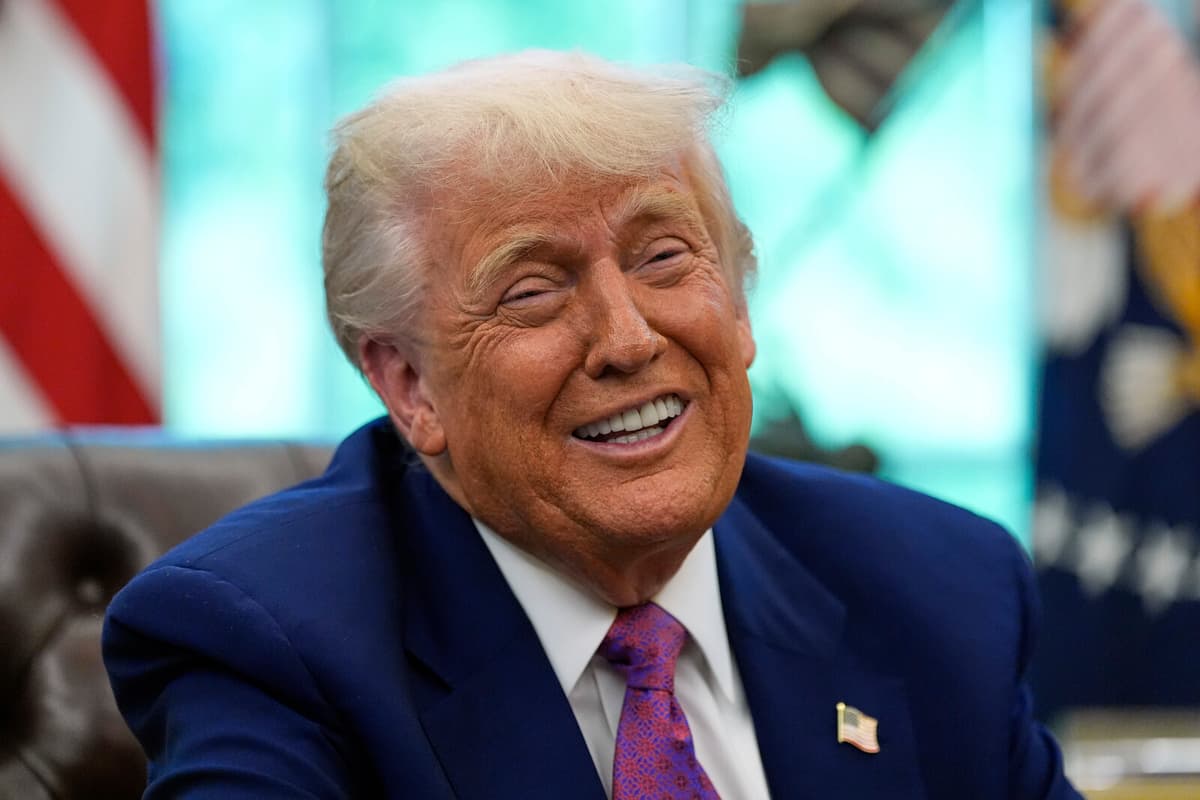The bond market is sending a warning signal to politicians that it is not possible to ignore financial sustainability for long, says Priya Misra, portfolio manager at JP Morgan Asset Management - a major investor on Wall Street.
He adds that the distrust of the US's growing budget deficit - which is expected to grow significantly if President Donald Trump's budget plans become a reality - is affecting risk appetite across the entire market: including stocks and credit markets.
Want to reduce dollar assets
From the top of the JP Morgan Chase empire, a clear warning signal is also coming.
The deficit problems must be addressed, says CEO Jamie Dimon.
I'm not worried about the short-term movements in the dollar. But I understand that people want to reduce their dollar assets, he adds.
His appeal is made in a Bloomberg TV interview in Shanghai, China. It comes after an auction of new 20-year US government bond issue on Wednesday became unusually difficult to find buyers - which pushed up interest rates.
Last week, the rating agency Moody's downgraded the US credit rating with reference to the US deficit and high interest rates. And this week, IMF chief Gita Gopinath has warned in unusually sharp terms about the consequences of the deficit and the steadily increasing US national debt.
The interest rate frost has been simmering in the background during the Trump administration's tariff shock in the spring. And many are asking themselves how high interest rates can become before the US central bank Federal Reserve (Fed) must intervene with support purchases to dampen interest rate pressure and ensure financial stability.
Much focus is on the US's 30-year government bonds, which rose to 5.14 percent after the House of Representatives narrowly approved a budget proposal, which is now moving forward to the Senate for consideration.
The interest rate level is the highest in nearly 20 years - in line with how it looked before the US subprime crisis in 2007, which culminated in a financial crisis after the Lehman Brothers crash in 2008.
The distrust of the US government finances - and the uncertainty surrounding the US economic outlook in the trade chaos - is clearly visible on the US stock exchanges and currency markets, where the dollar has lost over 13 percent of its value against the krona this year alone.
The Trump administration got a budget proposal approved by a deeply divided House of Representatives on Thursday. Negotiations and adjustments continued until the last minute, and now the proposal will also be handled by the Senate.
US President Donald Trump calls the budget - with large tax cuts and reductions - "the big beautiful bill".
The Trump administration claims that the tax cuts, reductions, and deregulations will pay for themselves in the form of increased growth. It is also talked about that budget holes can be filled by revenues from increased US tariffs.
Finance Minister Scott Bessent has declared that he aims to bring down the US budget deficit to 3 percent of GDP by the end of Trump's term.
But some calculations indicate that the proposal currently being considered by Congress will increase the US budget deficit from last year's 6.5 percent of GDP to just under 9 percent in ten years.
According to the US Congressional Budget Office, the US federal debt stood at 98 percent of GDP at the latest year-end, which can be compared to 73 percent ten years ago. And the national debt in the US can, according to the Budget Office, now increase by 3,800 billion dollars over the next ten years.






